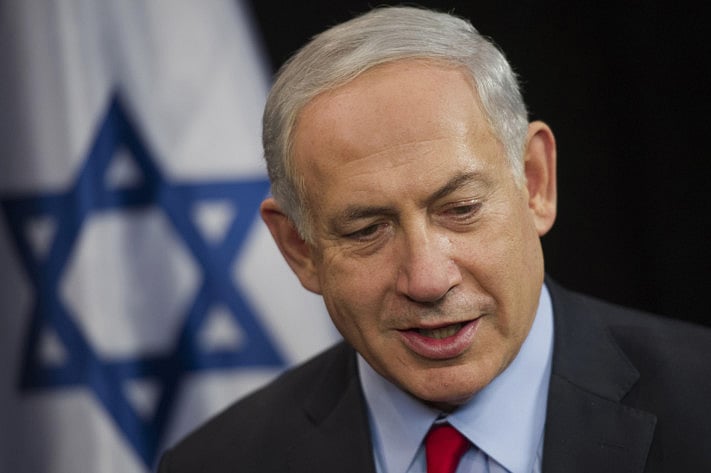Surprisingly, US President Barack Obama and Israeli Prime Minister Benjamin Netanyahu had initially the same feeling against going to Paris last Sunday to participate, alongside senior representatives from 40 nations, in the historic “unity” march.
The march followed the ghastly attack by terrorists on the satirical magazine, Charlie Hebdo, and a Jewish supermarket that led to the death of 17 people.
The White House apologised the next day for not sending a more senior US official, although the American ambassador in Paris was at the impressive event attended by over a million people.
But the Israeli prime minister changed his mind at the last minute upon learning that two other right-wing political rivals in the upcoming national elections on March 17, Foreign Minister Avigdor Lieberman and Economy Minister Naftali Bennett (both members of his cabinet), were planning to participate in the unprecedented demonstration.
His change of mind came despite an earlier blunt message from French President Francois Hollande that asked him not to come since the event would be focusing solely on solidarity with France after the bloodbath and not anything else that may divert the public’s attention, presumably the Palestinian-Israeli conflict.
Hence, Palestinian President Mahmoud Abbas, who had slammed the attack, was invited. During the march, Abbas marched next to Queen Rania and King Abdullah of Jordan, one of two Arab states that have diplomatic relations with the Israeli government.
During the march, Netanyahu, according to Israeli media, crashed from his position in the second line behind the heads of state and joined the first row, clinging his hand with Malian President Ebrahim Boubacar since as all the other leaders were doing likewise, allowing him to keep waving his right hand at other demonstrators watching from the sidewalks or their balconies, as if he was the main attraction.
Speaking later that day at the Grand Synagogue in Paris, where the French president was present alongside hundreds of Jews, the Israeli prime minister capitalised on the weekend’s bloody events, a point that prompted Hollande to leave the room instantly and obviously for fear he will focus on the Palestinian-Israeli conflict.
Nevertheless, Netanyahu went on to underline that “these days we are blessed with another privilege, a privilege that didn’t exist for generations of Jews — the privilege to join their brothers and sisters in their historic homeland of Israel”.
According to Haaretz, Netanyahu is now planning to assign a special ministerial committee “to discuss steps to encourage immigration from France and from Europe in general”.
But Netanyahu’s message seemingly fell on deaf ears. Rabbi Menachem Margolin, director of the European Jewish Association, regretted that “after every anti-Semitic attack in Europe, the Israeli government issues the same statements about the importance of aliyah [immigration to Israel], rather the employ every diplomatic and informational means at its disposal to strengthen the safety of Jewish life in Europe”.
The rabbi stressed that “every such Israeli campaign severely weakens and damages the Jewish communities that have the right to live securely wherever they are”.
What Netanyahu failed to do during the march could have stolen the show from the events of the horrendous week had he taken a few steps and shaken hands with the only two Arab leaders there — Abbas and Abdullah. But, of course, all indications to date are that Netanyahu is not interested in reaching a peaceful agreement with his Arab neighbours, especially the Palestinians.
Netanyahu once again missed the boat. Here’s what former US president Jimmy Carter said when he pointed out emphatically on a television programme that the Palestinian-Israeli conflict was among the factors that led to the deadly attacks in Paris.
“Well, one of the origins for it is the Palestinian problem. And this aggravates people who are affiliated in any way with the Arab people who live in the West Bank and Gaza, what they are doing now — what’s being done to them. So I think that’s part of it,” he told Jon Stewart on Comedy Central’s The Daily Show.
His formula, he went on, is for Israel to give up the West Bank, Gaza and occupied Jerusalem and for the Palestinians to promise Israel security.
Carter, who wrote a book called Palestine: Peace Not Apartheid added it was “disheartening” to think about how much time has lapsed since the Oslo Accords — signed in 1993 — without a peace agreement between Israel and the Palestinians.
“I still have hope for peace in the Middle East, but a distant hope.”
George S. Hishmeh is a Washington-based columnist. He can be contacted at ghishmeh@gulfnews.com
Sign up for the Daily Briefing
Get the latest news and updates straight to your inbox
Network Links
GN StoreDownload our app
© Al Nisr Publishing LLC 2026. All rights reserved.
